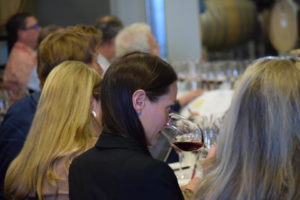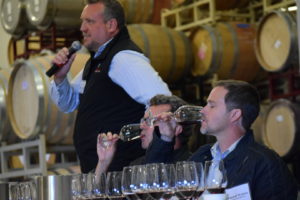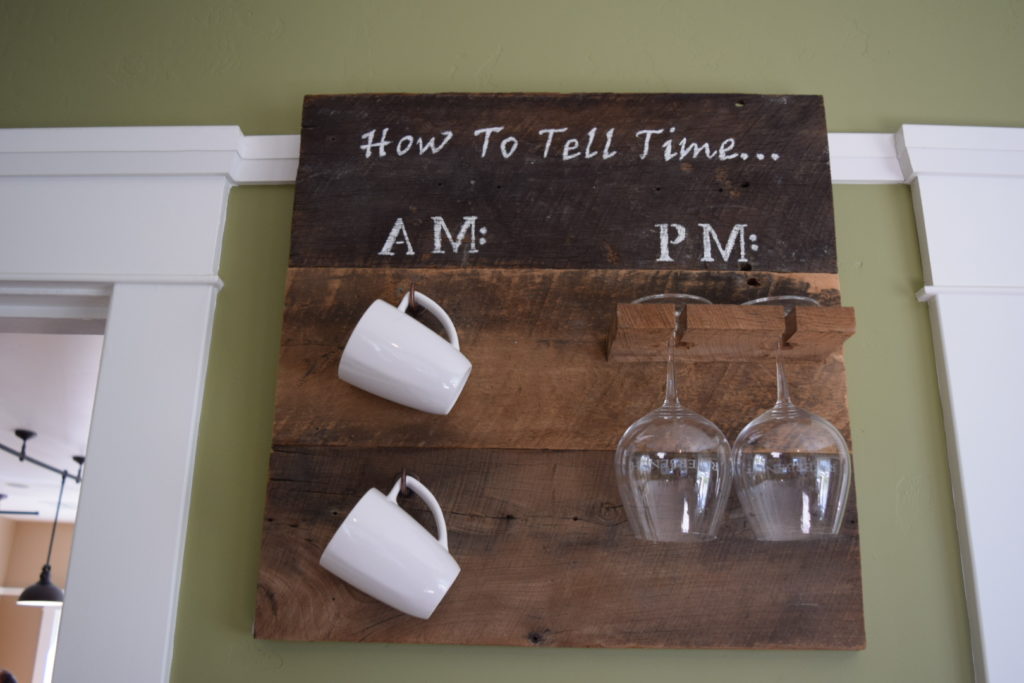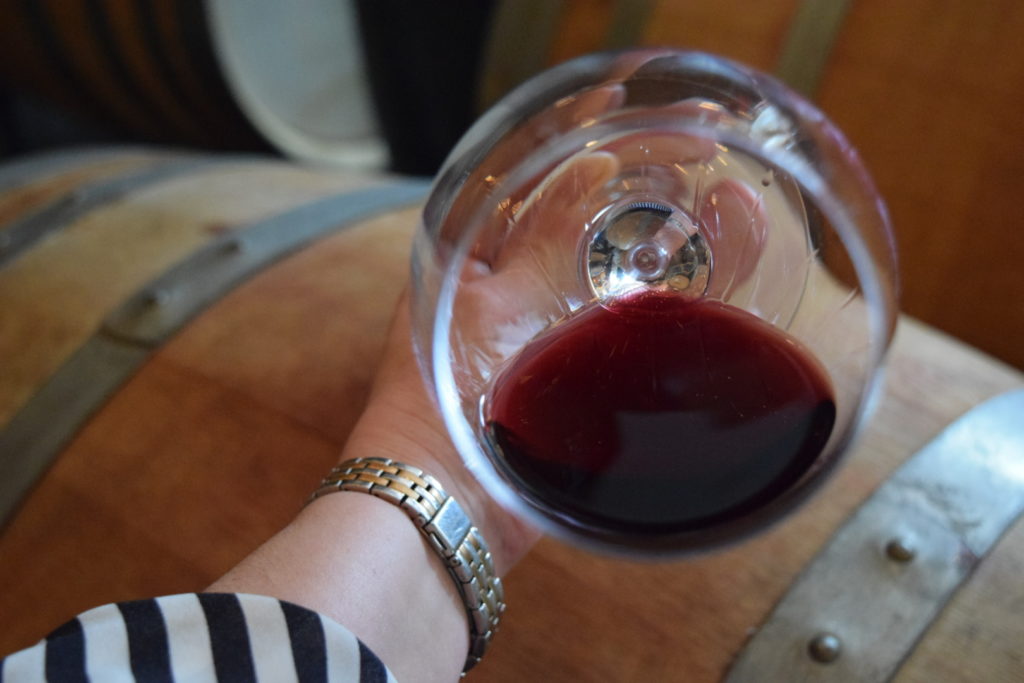Wine ‘tastings’ are somewhat inaccurately named – top sommeliers agree that smell is by far the most important sense when it comes to drinking wine.
Where did the term “wine tasting” come from?
I have heard that originally, wine tasting ( and the checking of corks) was done to insure that the bottle was not poisoned… as this was a popular way to kill off a ruler in ancient times.

After reading some materials, it seems that perhaps the practice may have grown out of the French appellation laws being written to qualify various wine growing regions of France.
Smelling the wine in the glass… and taking a moment to let the brain process what it is experiencing… is a great way to prepare the mind to be ready for the taste factor. Our sense of smell is an important factor in deciding what we are tasting.
Taste vs Smell – the debate is on.
SMELL: You might hear it referred to as a bouquet or aroma in the wine industry. The part of the brain called the ‘limbic system’ is the one responsible for picking up odors. The same exact part of the brain is also responsible for your emotions and long-term memories. Perhaps this is another reason why the smell factor is soo important to the overall enjoyment and experience that opening a wine bottle can provide.
 Memory is also important in comparing smells when it comes to tasting through a flight of different wines. Whether we are talking wine or food products, most of what we perceive as “taste” is actually being transferred from our nose’s ability to smell.
Memory is also important in comparing smells when it comes to tasting through a flight of different wines. Whether we are talking wine or food products, most of what we perceive as “taste” is actually being transferred from our nose’s ability to smell.
Because wine flavors and aromas can be quite complex, it is helpful to let your nose do some work before you taste to help you define the full bouquet of the glass. The smell influences the flavor. Period.
 Stick you nose in your glass during YOUR next “Wine Smelling”…
Stick you nose in your glass during YOUR next “Wine Smelling”…
CHEERS!
The 3rd Step in Tasting: Nose Evaluation
I’ve heard many great Sommeliers tell me that tasting wine is 85% about training your olfactory senses. The nose is where it’s at. Once you have given the wine a swirl, it is time to have a good smell. Let your nose hover just over the rim of the wine glass like a spider waiting for it’s prey. You want to take a few short sniffs of the nose and pull away for a moment to let your brain process the information you have just taken in. This gives a wine taster time to filter the info as well….
See More in the link below.
HOW TO TASTE WINE – For The Novice

